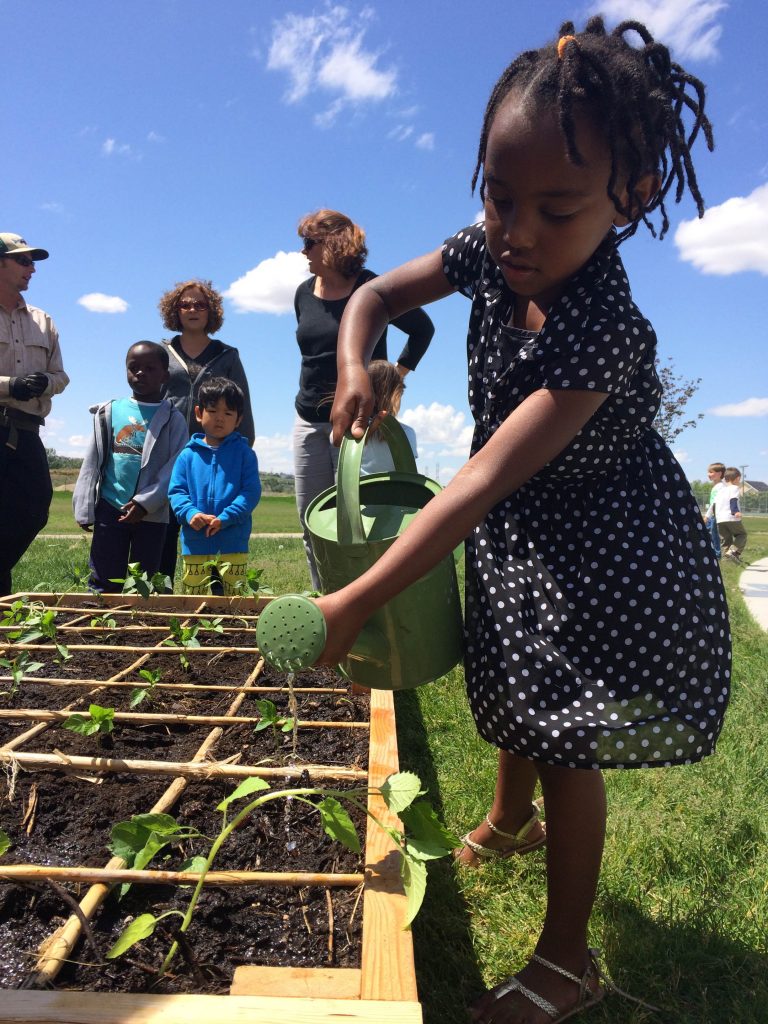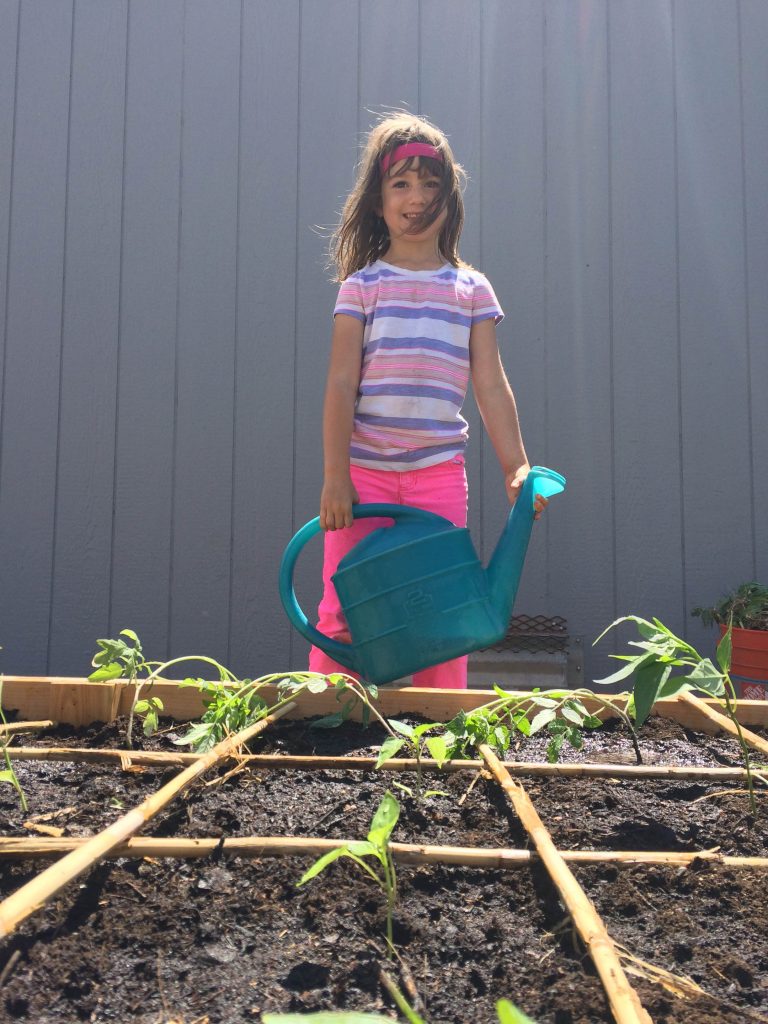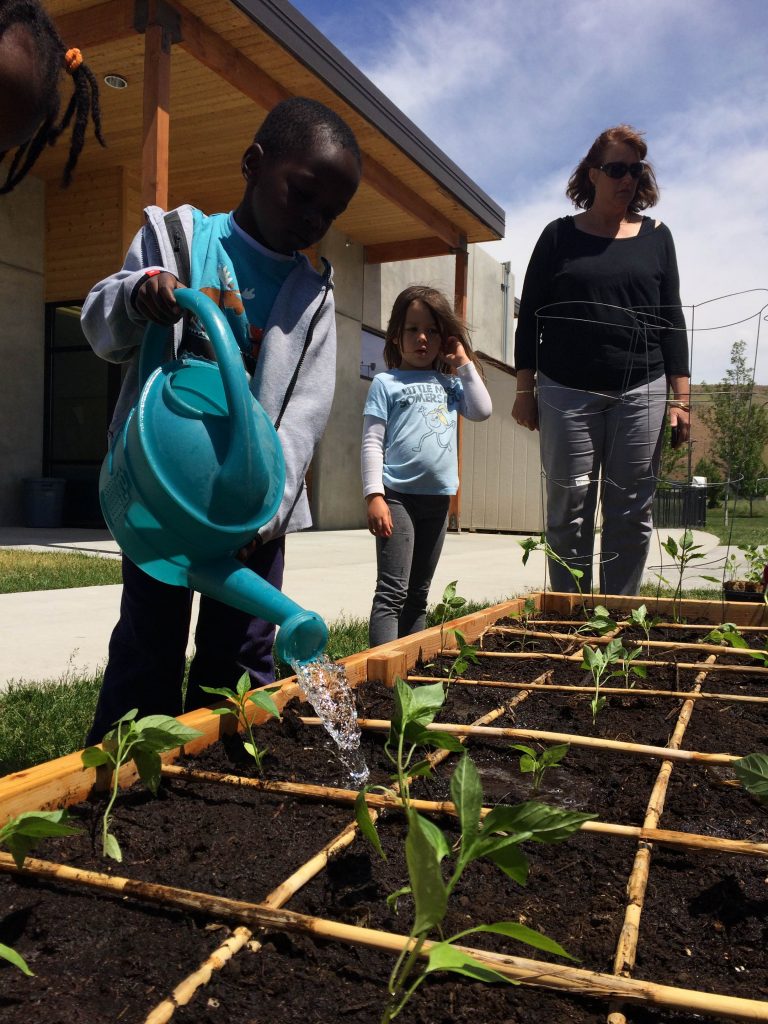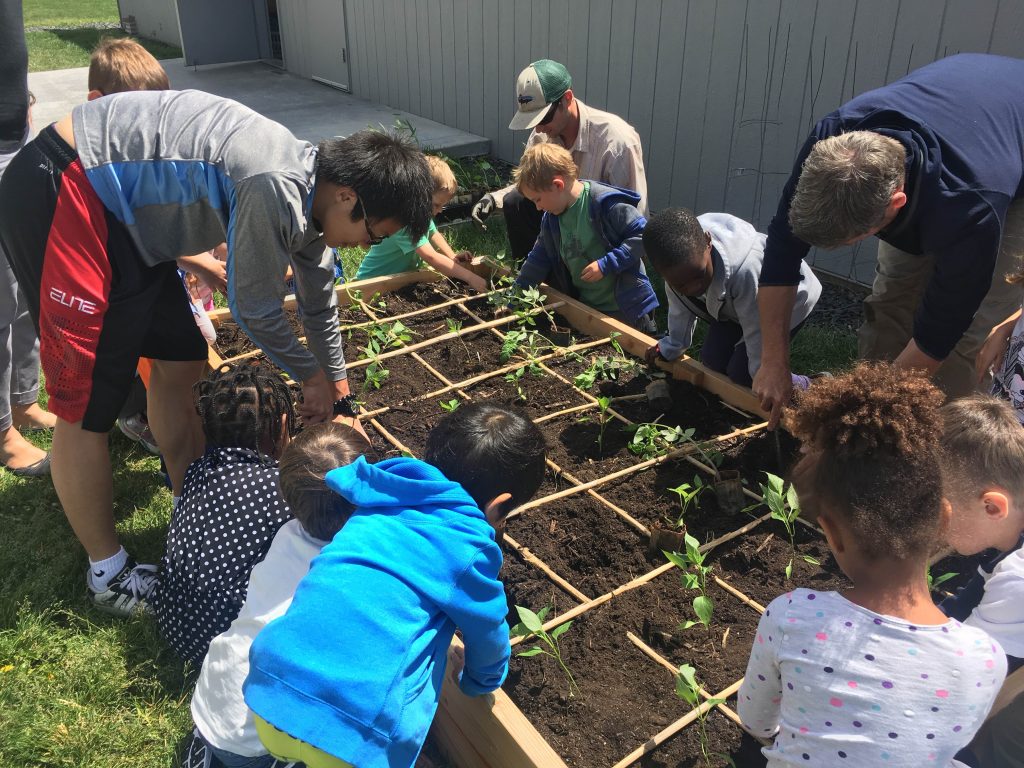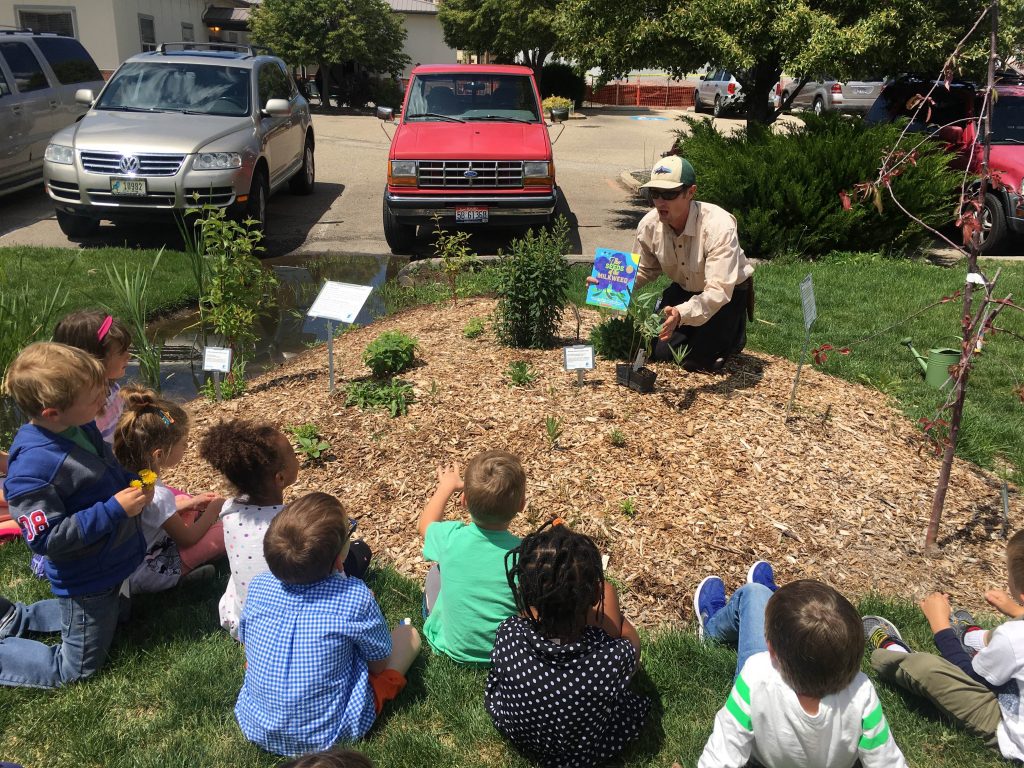
24 May A Raised Bed for the Elementary School
As I thumb through Last Child in the Woods by Richard Louv I encounter countless examples and case studies of the benefits of outdoor education from around the globe. The concept that environmental enrichment in education facilitates improvements in the lives of students is not a new one – for over a century programs like Waldorf and Montessori schools have used the outdoors to facilitate enhanced learning opportunities for their students.
The benefits of getting school children outside are legion and the case studies almost too overwhelming to attempt to synthesize. Case studies report improvements in passing rates, mathematics, mastery of science concepts, attendance and behavior and a reduction in disciplinary referrals and suspensions when the outdoor classroom is used. The educators at Riverstone have acknowledged these benefits. The Riverstone outdoor program is a robust and amazing program from pre-K through high school. Riverstone students are provided opportunities for so many outdoor opportunities. From snow sports and quinzee hut snow camping to kayaking and rafting, from backpacking to yoga, these students are provided opportunities and field trips to make any outdoor lover salivate.

If you are familiar with this blog you will know that one of my goals is to have students involved in as many steps as possible and to encourage all school activities to be student driven. So why did SustainingUS donate, and Ben Brock and I install, a raised bed between the elementary school and the lunchroom one afternoon? Because providing a raised bed for the elementary school students to use this spring will provide a much better opportunity for them to participate in outdoor education frequently, directly adjacent to their classrooms. The construction of a raised bed may not be an age-appropriate activity for younger kids, but the use of the garden is age-appropriate and much more fun! I hope its proximity to the entrance to the lunchroom will serve as a reminder of where food comes from, potentially enabling nutrition lessons, and perhaps even inspiring a greater utilization of the new worm apartment in the lunchroom! Last week on a day when the weather cooperated we planted the Salsa Garden plants that the Pre-K started growing early this spring in Planting Seeds with Recycled Materials.
One for us, and one for Mother Nature.
After planting into the new bed with bamboo stakes as square foot dividers, we took a moment to give back to Mother Nature, as one adept student put it. We planted a few more milkweed plants in the Pollinator Garden and the students got to reflect on the garden while I read them a story about the monarch life cycle called The Seeds of the Milkweed. Oh, and we also did an impromptu mushroom lesson on ink caps that were growing in the garden!
Outdoor education is valuable and important, and the lessons learned on the grand scale of hiking through the desert in Sheep Creek or learning to paddle a kayak on Idaho’s bountiful waterways can be reinforced by providing opportunities for outdoor education on campus. These on-campus opportunities connect students to the place they inhabit daily, where they are growing to become the next generation of leaders and thinkers. The signage in the native plant display garden and inclusion of a tree keying project in the curriculum are two other ways we are encouraging the students to interact with their campus as an outdoor classroom.
The simple magic of germinating a seed and watching it provide food for the school can permeate the life of an adult many years after your school days, as I know by experience. I always LOVED radishes as a kid, I think because I was an impatient gardener and they were the seed package with the shortest harvest interval more than for any other reason. I rarely plant radishes in my garden anymore, but the magic of growing my own food has stuck with me to this day. How difficult can gardening be if you used to do it as a pre-K student? Riverstone’s tagline is Inspiring the Journey – I like to think that part of that journey will lead their graduates into their yards and gardens as youth and adults and that access to a garden space during the formative years is a great way to enable willing students to participate. We gave the extra veggie starts to the parents, so at least a few of the students will be in their home gardens this summer!



